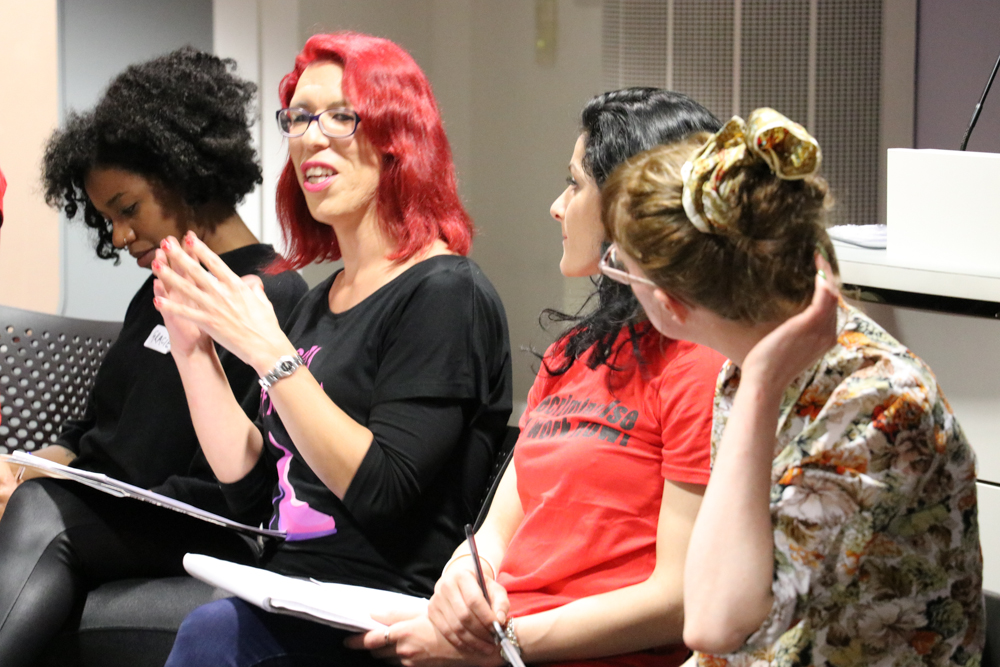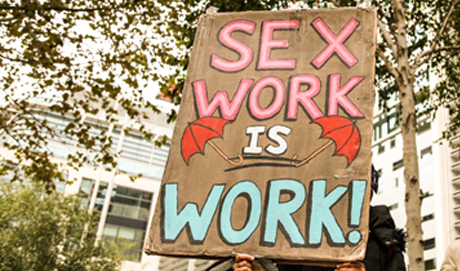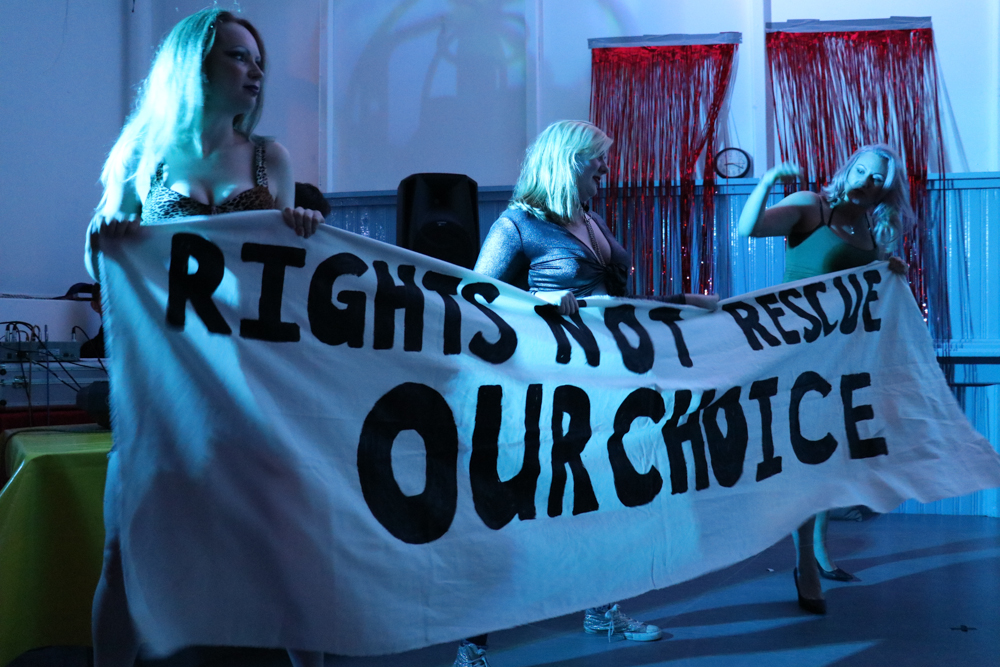
Sex Workers’ Festival of Resistance
A Festival supporting the struggle for Sex Workers’ Rights: share knowledge, discuss, dance and strategise!
Sex Worker Open University, in partnership with SCOT PEP, Umbrella Lane and ARIKA are inviting sex workers and allies to come together, share knowledge, discuss, debate, dance and strategise on how to protect and support sex workers’ rights!
The 4 days of events will include workshops for sex workers only to develop skills to advocate more powerfully for our rights as well as public events open to all such as the seminar day, film festival and party. All bringing awareness to the issues faced by sex workers and building alliances with other progressive movements. You can find out more about the work SWOU and SCOT PEP do on their websites.
ReadIntroduction
The Sex Workers’ Festival of Resistance 2017 is the succession of several other events and festivals coordinated by Sex Worker Open University. The first Festival took place in 2009 in London and since then several others have taken place both in London and Glasgow. Each events’ had their own themes and priorities – but SWOU always aimed to create environments that would mix political activism with more creative workshops and events. The festivals have allowed many sex workers to break their isolation, make new friends and allies, develop new skills and empower themselves to speak out for their rights.
The main aims of SWOU events are to bring together sex workers and allies to discuss, debate, share information and knowledge. Sex work is a complicated, controversial and contradictory issue which intersects with many other social justice issues: in particular women’s rights, migrant’s rights, economic justice, class struggle, labour rights, LGB and in particular trans rights. By creating these spaces, we hope that conversations and ideas can flow, that stereotypes about sex workers can be thought about differently again.
Some like to imagine that all sex workers are victims and refuse to see that the reality is more complex. Yes, many sell sex because of a lack of economic opportunities or other social factors like migration status or transphobia that limit access to education or other forms of employment. But this does not mean that sex workers are unable to speak for themselves and that they should be silenced and their work and lives criminalised.
“By building alliances with other social justice movement, we extend our solidarity to other communities under attack in increasingly racist and unequal society. We demand the same solidarity.” – Sex Worker Open University
Sex workers in the UK (and globally) face high levels of violence, discriminations and social exclusion. Whilst ‘prostitution’ itself is not illegal – people can sell and buy sexual services – almost everything related to sex work is illegal. Laws on soliciting and brothel-keeping mean that the majority of sex workers are directly criminalised. The laws that aim to tackle violence, exploitation coercion and trafficking in the sex industry exist but few sex workers feel protected by them as they are unable to trust the authorities to report violence and exploitation. Sex workers are treated as second-class citizens, and even worse if they belong to another stigmatised or criminalised community (migrant, trans, drug users…). When trying to report crimes against them, sex workers face arrests, fines, closure of their workplaces and deportations.
Currently two main models are being discussed: the Swedish Model (of criminalisation of clients) and the New Zealand Model (of decriminalisation). Many human rights and health organisations like Amnesty International, Human Rights Watch or the World Health Organisation have researched the impact of criminalisation on the lives of sex workers and are all supporting decriminalisation.
“For us, decriminalisation is the first (and actually the simplest step) in our battle for rights and justice. We are fighting for a world when no one should have to sell sex because there is no alternative and whilst we fight for this world, we demand that our means of survival, our work are not criminalised.” – Sex Worker Open University
As the economic divide between rich and poor keeps growing, as walls are being built between nations and people, who profits from criminalising sex work?
Arika have been working and collaborating with SWOU and Umbrella Lane for a few years and this Festival is the first public iteration of our work together.
Programme Events

Supporting Sex Workers
Catriona O’Brien Chamindra Weerawardhana Gracie Mae Bradley Juno Mac Laura Watson Luca Stevenson Nadine Stott Paulina Nicol Sabrina Sánchez Thierry Schaffauser
Three panels offering opportunities to discuss how to build stronger alliances between the sex workers’ rights, migrants rights and reproductive justice movements and how to face, together, an increasingly punitive and reactionary system.

Community Discussion: LGBTQI People & Sex Worker’s Rights
Join Umbrella Lane and special guest migrant trans sex workers in a community discussion about the points of intersection in LGBT people’s rights and sex worker’s rights.

Party & Performances
Marianne Chargois MC Ray St. Ray Sex Workers’ Opera
A party and fundraiser to support Sex Workers’ struggles and LGBT Unity with music and performances from the sex workers’ community and allies, plus DJ’s and dancing.

Film Fest: Stories from sex workers’ rights movement around the world
Luca Stevenson Rori
Three documentary films exploring diverse realities of sex workers around the world followed by a closing ceremony of the festival.